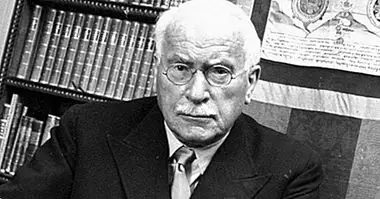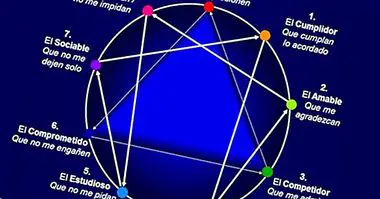Emotionally dependent people: their 8 characteristics
Emotionally dependent people are an example of the extent to which some individuals are able to unite their lives with others. And it is that although in appearance we all seem free, chaining ourselves to the decisions of others can become habitual; in some cases, to extremes that are clearly harmful.
In this article we will review the characteristics that define emotionally dependent people , and the habits and signals that indicate the presence of this pattern of thought and behavior.
- Related article: "Emotional dependence: the pathological addiction to your sentimental partner"
Emotionally dependent people: how are they?
In theory all human beings are unique, unrepeatable and with a constant personality; However, this does not mean that our way of thinking, feeling and acting is not influenced to the deepest by our interaction with others.
In most cases, the influence that an individual has on another person is limited, sometimes reaching something deeper due to persuasion. However, some people are more likely to develop emotional ties of dependence towards others. In this case, your actions are completely mixed with the acts of that other person.
How to recognize these signs that indicate that we are before an emotionally dependent person ? The main ones are the ones you can read below.
1. Feelings of inferiority and low self-esteem
This is a constant in emotionally dependent people. They are cruel to themselves, they have a very battered self-image and their style of attribution of causes to what happens to them leads them to blame themselves when something bad happens and to attribute everything to luck or to others when something good happens to them.
So, this low self-esteem makes it natural to seek the protection and guidance of some authority figure, someone who can watch over one and bring his life to fruition.
2. Dubious attitude
Emotionally dependent people constantly doubt, and their actions are marked by indecision. The reason is not simply a lack of assertiveness (You can be assertive with a clear idea of what you want) but simply do not believe in your own criteria to set objectives.
In the context of partner or friendships, for example, this means that a passive role is adopted and one acts only when the other person has clearly indicated the lines to follow.
3. Feeling guilty
This characteristic is also explained by the two previous ones, and consists of the ease with which the emotionally dependent people assume that the bad that happens around them is their fault. For example, if your partner is frustrated because you have not achieved one of your work goals for the day, they think they have not given you enough support.
This characteristic makes it easy for them to assume as normal situations of mistreatment directed against them, since they blame themselves for the anger that leads to violence .
4. Belief in romantic love
In Western societies, emotionally dependent people strongly believe in romantic love, since it expresses the bond of definitive dependence between two people. In practice, that means that the other person has a clear power over them, since the challenge of staying with them despite their failure to comply with their commitments is in itself an incentive.
5. Altruism without limits
This type of person is also characterized by investing what is needed in the emotional bonds that you have already created. Because, they tend to sacrifice themselves over and over again by other people , even if it is not reciprocal (something that is usual). This is not done in a free way, as a result of reflection, but in a systematic way, and as a reaction to the fear that comes from breaking the contact with that person.
In some way, the personal relationships of the emotional dependent person mortgages it, making it less free in the future.
- You may be interested: "Altruism: development of the prosocial self in children"
6. The fear of loneliness
Loneliness is something terrifying for emotionally dependent people, and that is why they bet everything on the letter to be united with someone. They do this through great sacrifices in order to be accepted and, in general, to be relevant to someone. The result is ominous, because they have a reason to be constantly denying their autonomy and accepting the demands of others.
7. Submission
Another of the fundamental characteristics of this psychological profile is submission and complacent character. They fear the idea of exhausting the patience of the one to whom the individuals with whom they are emotionally attached, and they try to satisfy all demands ; sometimes, even needs that have not been expressed.
8. Difficulty perceiving manipulation
Emotionally dependent people fall into manipulation frequently because of the characteristics mentioned above. In those situations, they do not recognize that they are being manipulated, since that would make them fall into cognitive dissonance: the idea of the other person taking advantage of the situation It clashes with the belief that maintaining that relationship is beneficial.
- You may be interested: "Manipulators have these 5 traits in common"



















